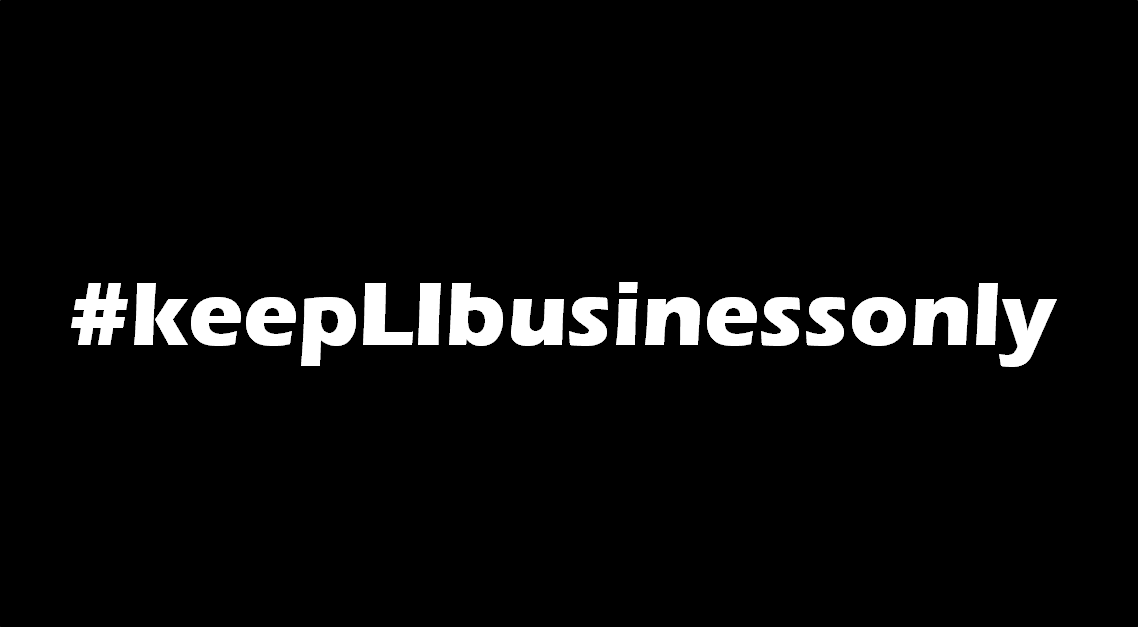|
We’re living in some wild times right now. Wild in the sense that life is changing rapidly around us, so fast in fact it can be challenging to keep up with it all. This is certainly the way of the world and what we can expect for the foreseeable future.
While change is inevitable, some change isn’t always for the best. Enter LinkedIn. If you’re unfamiliar with the story of LinkedIn you may be surprised to know it actually went live in May of 2003. You read that right, LinkedIn got started even before YouTube and Facebook. In the beginning LinkedIn’s mission statement was ‘connect the world's professionals to make them more productive and successful’. This is the foundation, the bedrock, of what LinkedIn was supposed to be. Fast forward to today, LinkedIn now owned by Microsoft since 2016, still has this same mission yet the actual user experience of the platform is anything but business focused. A quick scroll down LinkedIn’s running content feed reveals content posted by people and companies covering literally every spectrum imaginable from business, politics, religion, personal pictures and even cat memes. Lots of memes. This, in my most humble of opinions, is an unfortunate perversion of the platform. Today there are literally dozens of social media platforms offering us the opportunity to connect, speak our minds, share content while being paper tigers and internet trolls. So why is it LinkedIn keeps going the way of everyone else and allowing content that isn’t business related? It’s lost its competitive advantage. Why also are we as users adulterating this platform making it like all the others? As a daily user of LinkedIn my soul purpose for using this platform is for business purposes, so naturally this is my bias. I don’t use LinkedIn for anything else except business and on a daily basis wish that was the case for everyone else on the platform. I’m aware this is a big wish, perhaps colossal. There are dozens of other social communication platforms available for non-business purposes including Facebook, Instagram, Twitter, Tik Tok, YouTube, Tumblr, QQ, etc. If you want to post something non-business related you have a never-ending list of options at your disposal outside of LinkedIn. About a year ago I made a personal decision to remove myself permanently from all other social media platforms as I felt like the time I was spending on them, along with the negativity, wasn’t providing good value in my life. Fast forward to today, it’s hard to discern the difference between LinkedIn and other platforms like Facebook, Twitter, etc. This, again in my most humble of opinions, is a sad statement as the idea and original intention of what LinkedIn was supposed to be is a great thing. One which I believe is greatly needed in the world of business. So here is my ask – please stop using LinkedIn for non-business purposes. Take your cat memes, politics, religious statements and personal content to Facebook where it belongs. That being said, in the nicest way I know possible, here’s what I’m not saying in the above statement:
I’m also well aware of the fact that one can simply pass by unwanted content on LinkedIn they don’t like and or remove the connection or hide the content for future purposes. While yes, that is a possible solution it doesn’t necessarily solve the problem. Hiding or just passing by unwanted content is a form of indifference. E.W. Howe is quoted as saying “The most destructive criticism is indifference”. I agree. I remain convinced, even more so today, LinkedIn should and must remain focused solely on business. No exceptions. If you feel the same way about removing non-business content on LinkedIn I ask you to join me in using this hash tag any time you see content that isn’t business related. #keepLIbusinessonly Perhaps over time we can turn the tides and get this platform back to the way it was intended to be – for business purposes only. Be well & live wisely.
0 Comments
Co-Authored by Trisha Aure & Travis Smith
Many of us have been confronted as of recent with a reality which isn’t the status quo from before. As we continue to evolve and adjust our business and professional lives around COVID-19 inevitably many things will change for us in the short term. How we adapt to those changes makes or breaks our ability to grow personally while continuing to excel professionally. As social distancing continues to be a requirement in order to deal with COVID-19 companies and their employees are finding themselves in one of the biggest predicaments of arguably the last 40 years – the way we’ve done things in the past won’t work in the future. One of the biggest changes companies are having to adapt to is their employees not being able to come into the office, resulting in hundreds of thousands of people working from home – and doing so for their first time. We’ll be the first to tell you it can be a rather jarring experience if you don’t go about ‘working from home’ in a methodical fashion. With the freedom which comes from working at home also comes great responsibility – a responsibility that can be downright tough for many of us as distractions are a plenty. Below are 15 tips for working at home you can implement to ensure your time is efficient while succeeding with a masters grace:
Take Away Creating a new ‘work from home rhythm’ as close to our normal routine as possible will be the quickest way to staying on track with work and personal life. Schedule your day everyday and communicate that with your team and manager. You will find you’ll get more work done, often in a quicker timeframe. Key Consideration This is not a time to panic, this is the time to adjust and keep moving forward. A positive mindset and an openness to change are the keys to success here. Remember, things will resume like usual at some point soon. Keep your head up, smile, wash your hands and remember to be kind to others. We got this! As a child I dreamt of being a business owner. While the other kids in the neighborhood were talking about being pro athletes I always imaged myself starting a business. At the spry age of 10 I opened my first business in the early 90's in my parents basement in rural New York selling used skateboard parts. It was exciting! I had a business sign which proclaimed ‘Sk8 Parts’, a rack to display my shoddy products for sale and even a chair to sit on while waiting for the sales to come rolling in. After a summer being in business I had only made one sale a set of dirty and worn out skateboard wheels for a measly fifty cents to a kid down the street. That sale bought me a pink panther ice cream from the neighborhood ice man. While the business didn’t rocket me to instant success like I had envisioned I was hooked on the idea of being a business owner in the future so I could buy the whole ice cream factory, not just one pink panther. As I got older I tried my hand at inventing all sorts of things, products that I thought would get me rich, if I could only figure out a way to sell a few million of them. First it was a gaming chair, then workout towels and even a handheld flashlight projector. My entrepreneurial dreams ended at the time with a website I tried to start in 2006 that would allow people to ask questions and get advice based off real life business situations they were dealing with. That was a $2k boondoggle which went nowhere.
It wasn’t until the summer of 2015 that I would find my way, diving head first into entrepreneurship by starting Square-1 Engineering. Thankfully I had a lot of help from many close people around me (wife, parents, friends) who all were incredibly supportive. Four years into my current entrepreneurial journey I’ve learned and experienced firsthand many things which have helped me navigate my way to present day. Of all these experiences, learning lessons and awareness gained there are eight which have brought about the biggest positive impact in helping me weather the entrepreneur start up storm: 1.Get A Mentor This is the single second best decision you’ll ever make in business. The first best decision is to become an entrepreneur. Mentors have experience which you can learn from helping you avoid mistakes along the way. 2.Support Gets You Over The Hump Make sure those close to you understand your vision and support it. They don’t have to buy in 100% but if it’s you against the world there are going to be some very long nights in store. If you are married it’s vital your spouse understands the opportunity and supports it, even in the down times. 3.Some Things CAN Wait Some people will tell you it’s important to write a business plan, vision, mission, blah blah blah, right away. Unless you’re in a situation where you need to ask for capital to start the business the best thing to do is put those things aside and focus all your efforts on how to make money. Ultimately being an entrepreneur means you’re selling something to someone so the more time you spend on how you’re going to get paid for the product or service you’re providing the better off you’ll be. 4.You Can’t Be Everything to Everyone I failed miserably here. When I did start to get customers I tried to offer them everything under the sun in order to get their business. Some times it worked, often times it created a nightmare for me as now I had to deliver the goods. Never over promise, you’ll most likely end up under delivering. Find one or two areas you can become an expert in, one or two problems you can solve for your customers. Do that and only that before you start getting into other areas of opportunity. 5.Having a Plan-B is Dangerous I’ve read countless articles about “the power of having a ‘plan-B’ ” or an alternative course of direction. I hate that advice. As an entrepreneur if you don’t believe in what you’re doing and have a plan-B set up in case you fail you’re almost destined to set yourself up for disappointment. I’m not saying it’s not important to plan ahead for bumps in the road but if you’re going to start a business that should be your one and only focus. Anything other than a mentality of success has no place for you. Visualize to materialize. 6.Outsource Work The first several months I attempted to handle all the accounting and finance portions of the business only to realize two things: 1 – I’m not good at it nor do I like it; 2 – I created more problems than I remedied. Best advice I got was to pay the money to get a reliable CPA that understood my business and could help scale it up by making good decisions. Best money I’ve ever spent was a CPA. 7.The Power Of Saying ‘No’ Crucial to your success as an entrepreneur is the ability to politely and professionally say ‘no’. Similar to ‘you can’t be everything to everyone’ saying ‘no’ is harder than it sounds. Naturally you want to say yes to everyone, making everyone around you happy, especially if it’s a customer. Unfortunately, when we do this we get pulled in a hundred directions which causes us to deviate from our destined course. If you are asked to do something and it doesn’t align with your top 2 or 3 priorities politely decline and thank the person for the opportunity to be considered, even if it is a customer. 8.Breathe, It’ll Be Okay Very few things in life actually have the ability to stop you from moving forward in your new business. When bumps in the road momentarily derail you (you will experience plenty of bumps along the way) take a deep breath and be thankful for the opportunity to learn and grow as a professional. Stephen Covey put it best when he gave us the 90/10 principle: “10% of life is made up of what happens to you, 90% of life is decided by how you react.” – Stephen Covey About the AuthorTravis Smith is the founder and managing director of Square-1 Engineering, a medical device consulting firm, providing end to end engineering and compliance services. He successfully served the life sciences marketplace in SoCal for over 15 years and has been recognized as a ‘40 Under 40’ honoree by the Greater Irvine Chamber of Commerce as a top leader in Orange County, CA. Categories
All
Archives
April 2024
|
Visit Square-1's
|
|






 RSS Feed
RSS Feed


